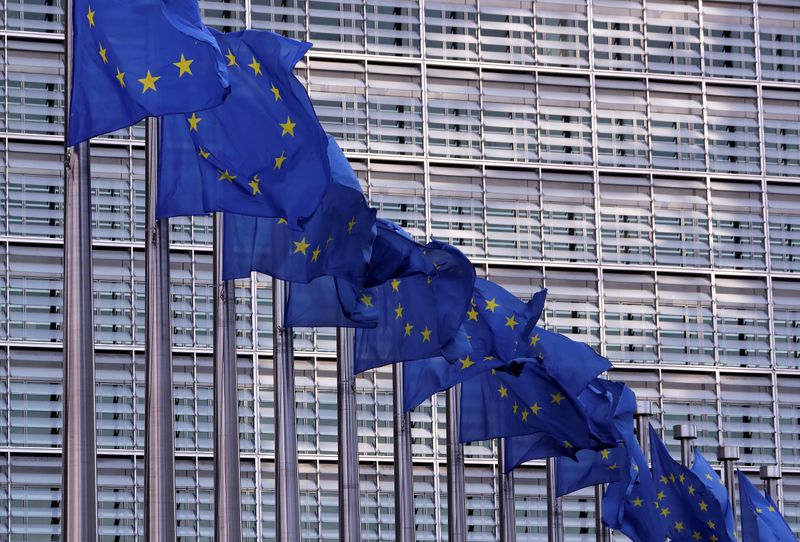By Kate Abnett
(Reuters) - European Union lawmakers are considering toughening the bloc's planned climate law, with stricter near-term emission goals and a binding commitment for every member state to decarbonize by 2050, according to a draft document seen by Reuters.
Such goals are required if the world is to stick within limits scientists say are needed to avoid devastating fallout from global warming, the lead author of the document, Swedish lawmaker Jytte Guteland, said.
The European Commission, the EU's executive, proposed the law in March - weeks before the coronavirus pandemic prompted an economic crisis that the bloc has pledged to tackle with "green" investment.
Centred around a legally binding goal to cut EU net greenhouse gas emissions to zero by 2050, the law must be agreed with lawmakers and member states to take effect.
Under a draft proposal for the parliament's position on the law, each individual EU country would need to reduce its national emissions to net zero by 2050 and achieve net "removals" of greenhouse gases after that date.
This is tougher than the Commission's bloc-wide 2050 target, which had raised the possibility that some of its 27 members could decarbonise later, if others did so early.
The draft also calls for the EU's 2030 climate target to be tightened to a 65% cut in emissions from 1990 levels, rather than the 50% or 55% cut being considered by the Commission.
Guteland, who guides the parliament's talks on the climate law, said the proposal fits the emissions pathway scientists say would avoid catastrophic climate change.
"Scientists are talking about planetary limits. If we do not limit our emissions faster during the first 10 years, then we might actually go over the planetary limits," she told Reuters of the risk of breaching the crucial 1.5 degrees boundary.
"It is political choice whether we do it or not."
The proposal sets the stage for difficult talks.
The United Nations says global greenhouse gas emissions must fall by an average of 7.6% each year from now until 2030 to limit global warming to 1.5 degrees Celsius (2.7 Fahrenheit) - the level that scientists say would avoid the most dire impacts of climate change.
Lawmakers will finalise their position in the coming months, before wrangling over the final law with the Commission and member states.
Of the three groups, parliament is typically the more determined advocate of tougher climate policies.
Still, the proposed 2030 target may struggle to get majority support from lawmakers and could face resistance from the Commission, which did not include a 65% target in its assessment of possible 2030 climate goals.
Making EU climate goals binding at national level could also deter countries concerned about the costs of reaching net zero, which the Commission says would require up to 290 billion euros of additional investments each year.
Poland was the only EU country to refuse to commit to the bloc-wide 2050 net zero emissions target, but the Czech Republic has called for climate aims to be dropped amid the pandemic.
On the other side, green groups had said the Commission's climate law proposal to clamp down on emissions after 2030 was too late.
Parliament's draft plan would lay out a pathway for EU emissions from 2025, measured against a "carbon budget" setting out how many emissions the bloc could produce without scuppering its climate commitments.

It would also create an independent panel of climate scientists to monitor the bloc's progress. Countries not on track would receive recommendations from the Commission, and could face fines if they flout the advice.